Hello, stargazers and seekers of wisdom! 🌟💫
Today, let’s embark on an enlightening journey across the celestial heavens as we explore the fascinating tapestry woven by different types of astrology. Are you ready to expand your cosmic knowledge? Grab a cup of tea and let's dive in!
The Magical Realms of Vedic & Western Astrology
If you're an astrology aficionado, your heart probably sings when you unravel the secrets of your birth chart. You might even be guilty of sneaking a peek at your astrological compatibility with that certain someone. 😉 But did you know there’s more to astrology than the Western system we’re all familiar with?
Folks, allow me to introduce you to the enchanting world of Vedic Astrology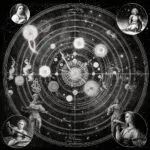 Astrology, a captivating blend of science and mysticism, has been a source of wonder and insight for centuries. This ancient practice examines the movements and positions of celestial bodies and their potential influence on human affairs and the natural world. From personal horoscopes to uncovering... ↓↓ Click for more details ↓↓, plus a little about many others. (A tiny spoiler alert: this might just revolutionize the way you perceive your horoscope.)
Astrology, a captivating blend of science and mysticism, has been a source of wonder and insight for centuries. This ancient practice examines the movements and positions of celestial bodies and their potential influence on human affairs and the natural world. From personal horoscopes to uncovering... ↓↓ Click for more details ↓↓, plus a little about many others. (A tiny spoiler alert: this might just revolutionize the way you perceive your horoscope.)
A Glimpse into the Ancient Scrolls: The Origins of Astrology
There's an array of astrological systems and frameworks which have their roots in various cultures and philosophies. This certainly is a testament to how enchanting and captivating the stars and planets are to humankind. Let’s take a brief stroll through some of these and behold the richness they add to our understanding of the cosmos.
Heliocentric Astrology
This is an interesting one! Heliocentric Astrology is built around the heliocentric model, where the Sun is at the center of the solar system. It often emphasizes collective energies and larger themes rather than individual destinies.
Psychological Astrology
In a heartwarming embrace, psychology meets astrology in this approach. Rooted in the work of the legendary psychologist Carl Jung, it seeks to unravel the psyche's depths and how celestial movements can impact our psychological fabric.
Sidereal and Tropical Astrology
These are like two siblings! Sidereal Astrology is based on the constellations' actual positions in the sky, while Tropical Astrology, which is often used in Western Astrology, is aligned with the seasons.
This is where Vedic Astrology lives. In the mystical land of India, Vedic Astrology, known as 'Jyotiṣa', which in Sanskrit translates to "light/heavenly body," has been guiding souls for millennia. It is believed to have made its ethereal appearance in the sacred Rigveda, an ancient Indian text. Some even whisper that it’s been around since 10,000 B.C. Can you imagine that?
Vedic astrology is like a treasure chest, brimming with the rich spiritual traditions and myths of ancient Indian culture. The radiant Pamela McDonough, founder of Moondance Vedic Astrology and author of Vedic Astrology for Beginners, shares, "Even today, throughout much of India, Jyotish is an accepted science and, for many, is part of their lifestyle."
Initially, Vedic astrology was the guiding light for determining propitious dates for sacrifices and rituals. Gradually, like a flower blooming, it unfolded into something much more personal, as people began to harness its wisdom to understand their own cosmic destiny.
What's even more enchanting is that Vedic Astrology is intertwined with other ancient Indian practices, like Yoga and Ayurveda. Just like its Western cousin, Vedic astrology offers us a celestial guide to better understanding our physical, emotional, spiritual, and even financial tapestry of life.
Cultural and Historical Frameworks
Astrology has danced through ages and cultures. Burmese astrology, Chinese astrology, Hindu astrology, Jewish astrology, and Tibetan astrology are some systems that have evolved in different cultures. They are often woven with the respective culture's myths, traditions, and spiritual beliefs.
The historical development of astrology includes Babylonian astrology, Hellenistic astrology, Islamic astrology, and others, which have been the stepping stones to the contemporary forms.
Agricultural and Katarchic Astrology
Imagine planning your garden under the stars! Agricultural Astrology is used for horticulture planning based on celestial cycles. Katarchic Astrology is an ancient form that was used to determine the best times to launch endeavors.
Medical and Meteorological Astrology
These forms of astrology dive into human physiology and weather forecasting. How fascinating that people looked to the stars for insights on health and weather!
Natal and Horary Astrology
Natal Astrology is probably what you’re most familiar with, as it deals with an individual’s birth chart. Horary Astrology, on the other hand, answers specific questions by analyzing the planetary positions at the time the question is asked.
Mundane Astrology
This deals with larger scale events like politics, governments, and nations. It’s like zooming out to look at the bigger picture of the world.
Recent Western Developments
The West has seen an emergence of new traditions like Astrocartography, which deals with the influence of location, and Financial astrology, which explores economic trends. Human Design is another interesting system that blends astrology, the I Ching, Kabbalah, and more.
Relationships with Other Disciplines
Astrology has been in dialogue with various disciplines and beliefs such as Alchemy Steeped in antiquity, Alchemy arose in the Middle Ages as an illustrious branch of High Magic. Its essence is an alchemic dance between mysticism and science. With roots that intertwine with ancient philosophy and spirituality, Alchemy endeavored to transmute base metals into gold through a..., Archaeoastronomy, Numerology, and more.
Steeped in antiquity, Alchemy arose in the Middle Ages as an illustrious branch of High Magic. Its essence is an alchemic dance between mysticism and science. With roots that intertwine with ancient philosophy and spirituality, Alchemy endeavored to transmute base metals into gold through a..., Archaeoastronomy, Numerology, and more.
Twirling Amongst the Stars: Dates and signs
Twinkle, twinkle, Astrology stars, how similar you are to ours! 🌌
It's important to note that not all astrological systems have zodiac signs with specific date ranges like Western or Vedic astrology. Here's what you need to know:
Western Astrology (Tropical Zodiac): In Western astrology, which follows the Tropical Zodiac, the signs are based on the seasons. The beginning of Aries Aries, the bold and ambitious trailblazer of the zodiac, is renowned for its leadership and zest for life. Learn about the fascinating traits and personality of Aries, the impact of Mars as its ruling planet, and the symbolism behind the ram. Empower yourself with insights... ↓↓ Click for more details ↓↓, for example, is marked by the Spring Equinox around March 21st. This is a fixed point that doesn't change, so the dates for the Western Zodiac signs stay the same every year. This was my mother's astrology path where she start to teach me about the stars, signs, and traits of each.
Aries, the bold and ambitious trailblazer of the zodiac, is renowned for its leadership and zest for life. Learn about the fascinating traits and personality of Aries, the impact of Mars as its ruling planet, and the symbolism behind the ram. Empower yourself with insights... ↓↓ Click for more details ↓↓, for example, is marked by the Spring Equinox around March 21st. This is a fixed point that doesn't change, so the dates for the Western Zodiac signs stay the same every year. This was my mother's astrology path where she start to teach me about the stars, signs, and traits of each.
- Aries: March 21 – April 19
- Taurus: April 20 – May 20
- Gemini: May 21 – June 20
- Cancer: June 21 – July 22
- Leo: July 23 – August 22
- Virgo: August 23 – September 22
- Libra: September 23 – October 22
- Scorpio: October 23 – November 21
- Sagittarius: November 22 – December 21
- Capricorn: December 22 – January 19
- Aquarius: January 20 – February 18
- Pisces: February 19 – March 20
Vedic Astrology (Sidereal Zodiac): In contrast, Vedic astrology follows the Sidereal Zodiac, where the signs are aligned with their corresponding constellations in the sky. Due to the precession of the equinoxes, the positions of these constellations shift gradually. This means that the dates for the Vedic Zodiac signs are slightly different and may change over long periods. This is my astrology path but for this site, I write in Topical Zodiac dates.
- Aries (Mesha): April 13 – May 14
- Taurus (Vrishaba): May 15 – June 14
- Gemini (Mithuna): June 15 – July 14
- Cancer (Karkata): July 15 – August 14
- Leo (Simha): August 15 – September 15
- Virgo (Kanya): September 16 – October 15
- Libra (Tula): October 16 – November 14
- Scorpio (Vrishchika): November 15 – December 14
- Sagittarius (Dhanus): December 15 – January 13
- Capricorn (Makara): January 14 – February 11
- Aquarius (Kumbha): February 12 – March 12
- Pisces (Meena): March 13 – April 12
Chinese Astrology (Based on Lunar Year):
- Rat: 2020, 2008, 1996, 1984, 1972, 1960, ...
- Ox: 2021, 2009, 1997, 1985, 1973, 1961, ...
- Tiger: 2023, 2010, 1998, 1986, 1974, 1962, ...
- Rabbit: 2024, 2011, 1999, 1987, 1975, 1963, ...
- Dragon: 2025, 2012, 2000, 1988, 1976, 1964, ...
- Snake: 2026, 2013, 2001, 1989, 1977, 1965, ...
- Horse: 2027, 2014, 2002, 1990, 1978, 1966, ...
- Goat: 2028, 2015, 2003, 1991, 1979, 1967, ...
- Monkey: 2029, 2016, 2004, 1992, 1980, 1968, ...
- Rooster: 2030, 2017, 2005, 1993, 1981, 1969, ...
- Dog: 2031, 2018, 2006, 1994, 1982, 1970, ...
- Pig: 2032, 2019, 2007, 1995, 1983, 1971, ...
As for the other astrological systems and frameworks you mentioned, such as Heliocentric Astrology, Psychological Astrology, Agricultural and Katarchic Astrology, Medical and Meteorological Astrology, Natal and Horary Astrology, and Mundane Astrology, these do not have associated zodiac signs or date structures. These are different approaches or branches of astrology that focus on various aspects like psychology, medical, event planning, location, etc., rather than associating zodiac signs with specific date ranges.
Isn’t it wonderful to learn and embrace various perspectives? Vedic astrology, like Western astrology, can offer invaluable insights into our lives.
Dear kindred spirits, your curiosity, and hunger for knowledge are truly inspiring. I invite you to share your thoughts or questions in the comments below, or reach out through the Contact Me form. Our celestial journey is one that is infinitely richer when shared.
May the stars always guide you. 🌟💖

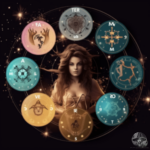
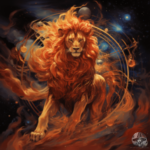


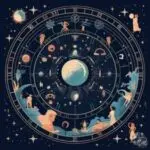
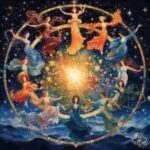
Pingback: Astrology and Astronomy, Why Our Birthdays Don't Always Match Our Signs - Ancient Pathways Witchcraft